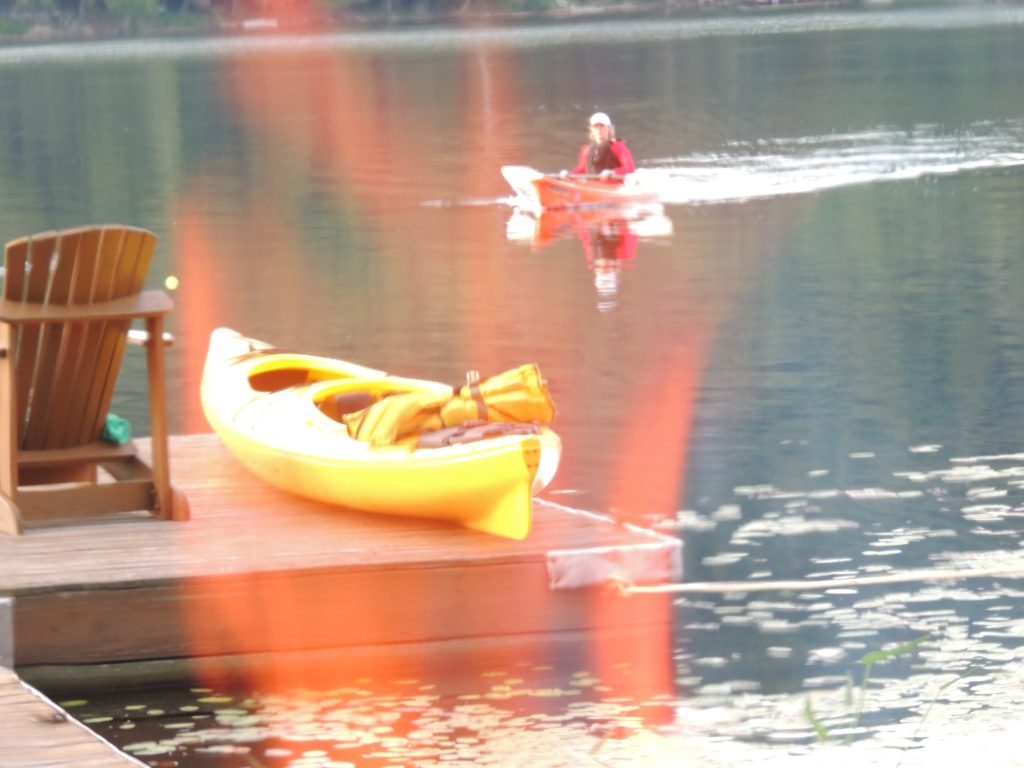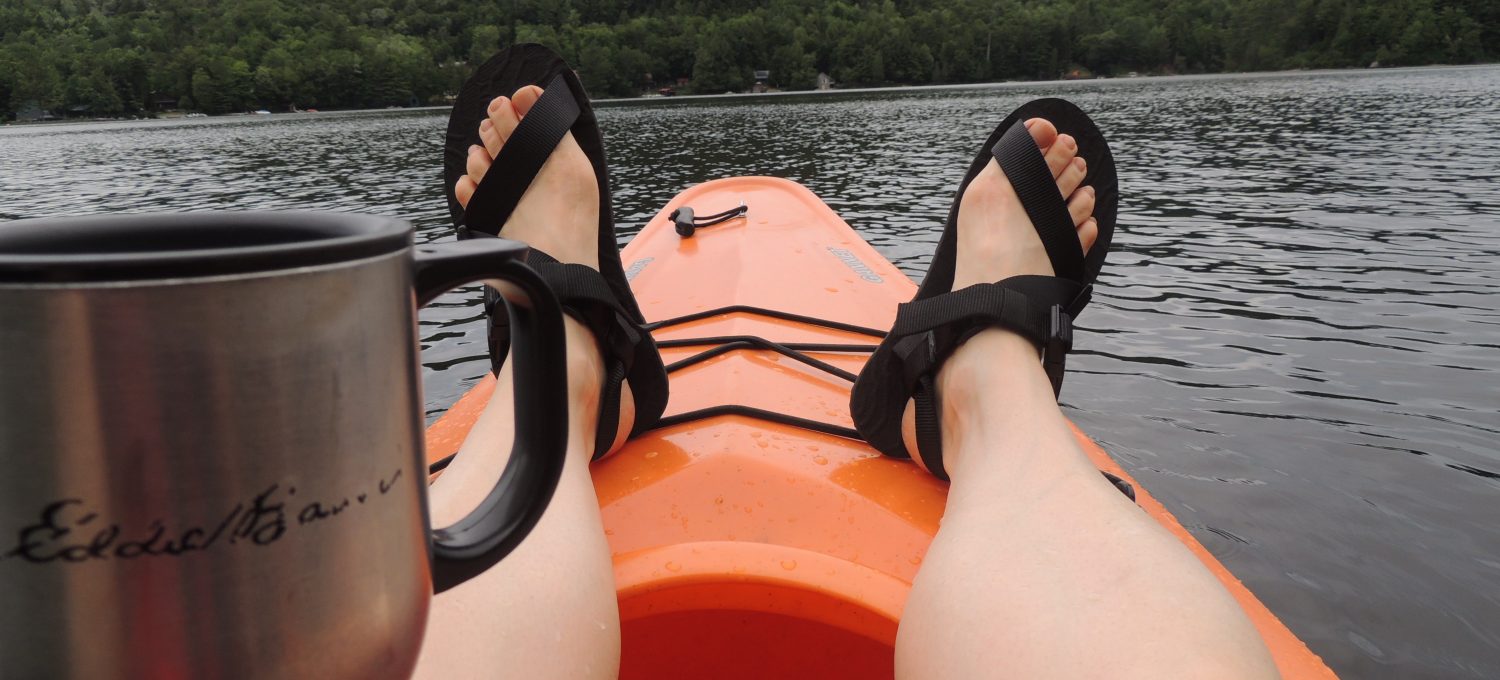I’ve been a kayak owner since 2001. Here are some circumstances that require fast paddling.
1) There’s a big black cloud behind you, you’re on the opposite side of the lake and you’re trying to get back before the rain hits.
2) The rain is coming sideways and there are whitecaps. The wind is pushing you sideways and you’re paddling fast to keep the kayak pointed into the waves, thus avoiding being swamped.
3) It’s time to eat and you can smell the yummy stuff on the grill.
4) You have a toddler on your lap, who has decided that she wants out of the kayak. NOW!
5) It’s a race with a sibling, spouse or child. Duh.
6) Just for funsies when there’s no race. Because you can.
In all of these cases, it doesn’t matter how great your paddling technique or how much effort you give, if your kayak has a structural problem, you’re not going to be able to go fast. If it’s not watertight, then you’re taking on water. If the shape of the bottom is as aerodynamic as a bathtub (like many rental kayaks) rather than a sharp point, then you’re not going to be a contender in the race. If you’ve only got one half of a kayak paddle, then you’re not going to have a very successful outing. It is essential that your gear is in proper working condition.
Hang with me here – what does this have to do with musicians? It’s coming…
In a recent Flute Examiner staff discussion, Jessica made the comment “We’re all paddling as fast as we can right now,” in reference to the idea that we all have lots of things that need to be done in a short amount of time. ’Tis the season for spring recitals, festivals, spring break, and spring cleaning. This made me think about my college class last week, which was our last class meeting before spring break. My students were beyond stressed. They were tired, grumpy, worried about midterms and missing theory assignments, busy catching up on stuff after playing the opera run and just about all of them were currently sick or recovering from illness. As a group, they were most definitely paddling fast. However, the problem is that they aren’t taking care of the boat, which, in this case, is their own bodies. Music making is a whole body activity and what is happening with that body impacts the type of music that comes out.
Let’s be real—college life does not set students up well to take care of themselves. They don’t sleep well in the extra-long twin super crunchy dorm beds. They stay up too late. They don’t eat well, which is understandable because college food often leaves much to be desired. They don’t eat at appropriate times. Even if they’re living off campus and cooking for themselves, they often don’t have the time to cook healthy meals. They don’t hydrate well—coffee, tea, and Red Bull don’t count. It’s not surprising that they are mostly sick by the midpoint of the semester. This happens every semester, every year. My oldest daughter is a college freshman this year and she’s been sick more this year than any other year of her life.
Many of us aren’t taking care of our boat, even though our college days are long gone. I’ve been doing a lot of reading about hormone balance, perimenopause/menopause and exercise physiology books for women by women with research done on women. [Here’s what I’ve been reading in case anyone is wondering, but it’s not extremely relevant to this article. The Hormone Cure by Dr. Sara Gottfried and Next Level by Stacy Sims. What keeps coming up over and over again is the fact that we have the power to make foundational lifestyle choices that impact everything we do. These foundations are prioritizing sleep, whole food nutrition, proper hydration, stress management, eating the right stuff at the right time. This is essentially the same list of things my college kids struggle with on a regular basis.
The life of a working musician, in all of its forms, (performing, teaching, writing, repairing, researching) often requires us to paddle like mad to keep from going under. It is essential that we take proper care of ourselves if we want to be able to do our musical stuff. On my first white water rafting trip on the Gauley River in West Virginia, our guide told us, “When I say paddle, you paddle. The people who fall out are the ones who don’t keep the paddle in the water.” Take care of your boat, keep your head up and keep that paddle in the water.


